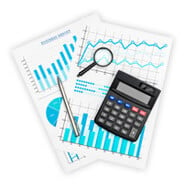Decoding active management
Active and passive funds Q&A

By contrast, actively managed funds have a manager (usually backed by a team of researchers, analysts and other support staff) who conducts research and analysis to pick the stocks they believe will outperform the market when it is rising and protect the value of your investment if the market is falling. This human stock-picking element is why these funds are known as active.


The possibility of growth and loss in an active fund may be more acute, but active managers can invest in a wider variety of assets, each with a different risk profile. By diversifying across risky and less risky assets in this way, an active fund manager can diversify the overall risk in a portfolio and still maintain the opportunity for growth.

So when the market falls, a passive fund can only fall in value in exactly the same way, mirroring that index; whereas an actively-managed fund always has the potential to perform better than the market.

In general, yes, but for an understandable and valuable reason. In order to identify investment opportunities that have the potential to outperform the market active managers have to undertake in-depth research. This includes monitoring market trends, investigating companies, site visits and analysis of environmental, social and governance criteria – a specialist and time-consuming process. Active managers also have the freedom to buy and sell assets as the opportunities arise. While each transaction has a cost, active managers’ strategies can outperform the market and offset these costs.

So while it may not be a myth that active funds can cost more than passive funds, it is worth understanding that active managers also undertake far more work in their pursuit of those stocks that will perform well.

As stated above, passive funds replicate an index or market and therefore must invest in all the stocks in that index. Passive fund performance will therefore go up and down depending on how the market performs. Active fund managers have the ability to invest in stocks they believe will outperform and ignore those they believe will underperform. This gives them the opportunity to outperform the market (and by implication, passive funds) at any time and in any market condition.

That outperformance may potentially be more pronounced in a falling market – a time when all passive funds will be falling in tandem – but it ultimately depends on the companies the active manager has invested in. Passive funds do not have the same opportunity as their performance will only ever mirror that of the index or market they track.


You may also like
About Us
Our Funds
Our Capabilities
We offer a broad range of actively managed investment strategies and solutions covering global, regional and domestic markets and asset classes.

